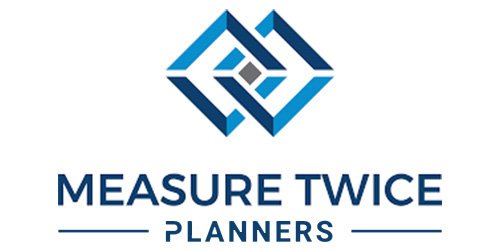Frontline
T-Mobile’s compensation is complicated. That complexity creates opportunity!
Below are some resources for T-Mobile Frontline (usually hourly) employees.
Compensation
-
T-Mobile’s total compensation includes:
base salary and wages,
variable bonuses and commissions,
stock compensation, and
many benefits
-
T-Mobile’s frontline compensation includes:
base hourly wages
shift differential hourly wages
overtime at time and a half (1.5x base hourly wage)
holiday pay at double (2x hourly wage)
monthly target incentives - primarily commissions for Retail and Monthly Cash Incentive Program (MCIP) for Care
T-Mobile shares position compensation details for:
Care (T-Mobile Customer Care tab; slide in the middle of the page)
Both base wages and target incentives grow with promotions. However, the growth isn’t straight-line.
Employees are paid biweekly (26 pay periods). There are two months each year with three paychecks.
-
T-Mobile overtime is generally paid at time and a half (1.5x base wage).
When someone’s promoted from hourly to salary, they lose both overtime and extra holiday pay. Fortunately, the promotion raise generally more than covers the difference.
It’s also important to consider hours worked before accepting a salaried position.
Holidays and Paid Time Off
-
T-Mobile’s holidays are:
New Year's Day
Martin Luther King, Jr. Day
Memorial Day
Juneteenth (June 19th)
Independence Day (4th of July)
Labor Day
Veterans Day
Thanksgiving Day
Day After Thanksgiving
Christmas Day
Two Floating Holidays
While I worked there, T-Mobile added five corporate holidays:
Martin Luther King, Jr. Day
Juneteenth (June 19th)
Veterans Day
Two Floating Holidays
The two floating holidays are “use it or lose it.” It generally makes sense to use these floating holidays before leaving T-Mobile.
-
For full-time employees, Paid Time Off generally accrues at:
152 hours per year to start
192 hours per year after the employee’s third anniversary
232 hours per year after the employee’s seventh anniversary
For part-time employees, Paid Time Off generally accrues at:
88 hours per year to start
108 hours per year after the employee’s third anniversary
128 hours per year after the employee’s seventh anniversary
Frontline compensation is often highest September-December. Those are more “expensive” times to take Paid Time Off. Those times also include some holidays, which could result in double time and a half (3x) pay.
It may make sense to plan PTO strategically:
Scheduling the year in advance could help ensure it’s prioritized!
Taking time off when others do as well could help PTO feel less like “get behind days.”
Paid Time Off is generally use it or lose it. 80 hours can usually be rolled over to the next year. However, that amount has dropped to as low as 40 hours and grown to as much as 120 hours in past years.
Unused Paid Time Off is paid out to employees upon termination should they leave T-Mobile.
Stock Compensation
-
Restricted Stock Units are generally granted each February and vest over two or three years. Employees then receive shares of T-Mobile stock if they remain employed with the company.
The number of RSUs granted depends on pay level. RSU grants are larger at higher pay bands.
-
The Employee Stock Purchase Plan (ESPP) occurs in six month intervals. Employees set aside money each paycheck to then purchase shares at a discount.
That discount is 15% off the lesser of the:
share price (TMUS) at the end of the six months and
share price (TMUS) at the beginning of the six months.
The discount will be more than 15% if T-Mobile’s stock share price rises from the start to the end of the six month period.
General Benefits
-
T-Mobile matches employee contributions:
100% on the first 3%
50% on the next 2%
If an employee contributes 5% of their pay, T-Mobile matches 4%.
-
T-Mobile’s 401(k) plan contributions include:
regular pre-tax
bonus pre-tax
regular after-tax (Roth)
bonus after-tax (Roth)
employer matching (pre-tax)
employer make-ups (also known as true-ups)
T-Mobile’s employer make-ups typically occur the following March. These contributions are made to ensure 4% of qualifying income is contributed to the pre-tax 401(k) if an employee contributes at least 5% of their eligible compensation for the year. This is typically an issue if an employee reaches the federal employee contribution limit before the end of the calendar year.
As of early 2022, Mega Roth (“backdoor”) contributions are allowed. This enables high earners to contribute to Roth IRAs through a two-step process despite exceeding the regular Roth IRA income limits.
-
T-Mobile’s employee health insurance plans include:
Health Savings Accounts (HSAs)
Health Reimbursement Accounts (HRAs)
Exclusive Provider Organization (EPO)
Hawaii employees have some other options.
T-Mobile provides a decision tool to help choose among the options during open enrollment.
Healthcare Flexible Spending Accounts (FSAs):
enable tax savings on medical expenses
are “use it or lose it”
If leaving T-Mobile, it generally makes sense to use funds which would otherwise be forfeited.
-
The dental plan pays for:
100% of most preventative care
80% of basic care
50% of major services/orthodontia.
The vision plan pays for:
eye exams ($15 copay)
lenses and frames (up to $200/year, $25 co-pay)
contact lenses (up to $200 per year without a copay)
If leaving T-Mobile, it generally makes sense to use funds which would otherwise be forfeited.
-
T-Mobile automatically provides Life and Accidental Death & Dismemberment (AD&D) insurance of 1.5x annual base pay and commissions.
Voluntary Life and AD&D insurance are available for purchase up to 8x. Higher amounts may require underwriting (a medical exam, etc.)
T-Mobile automatically covers 180 days of short-term disability at 75% of pay (with a one week unpaid waiting period).
After that, T-Mobile’s long-term disability may cover 50% of the employee’s monthly pay. A bit higher percentage is available for purchase.
Adequate life and disability insurance can be critical - especially for younger families.
Disability is more common than death. Expenses may rise while income falls.
Targeted Benefits
-
With some restrictions, parent benefits include:
eight weeks of paid maternity leave for the birth parent
plus four weeks of paid family bonding time (which is also available for non-birth parents)
As a large employer, T-Mobile also must comply with the federal Family and Medical Leave Act (FMLA).
There is Free Money for Childcare (Childcare Subsidy) of:
$250/month if annual pay is less than $63,000
$175/month if annual pay is less than $99,000
Dependent Care Flexible Spending Accounts:
enable tax savings for dependent care expenses
are “use it or lose it”
cannot be used for overnight camps
-
Other T-Mobile benefits include:
tuition assistance
employee discount
Appreciation Zone points
donation matching
company awards…
-
Highly variable compensation may require a larger emergency fund.
Relatively large paychecks could enable debt payoff, investments, or big ticket purchases.
Employees often consider combining finances with a life partner. Some think it’s like a light switch: combined or separate. However, it’s more like a dimmer with infinite options.
Up to a 15 year 401(k) loan may be available for the purchase of a primary residence.
Very few employees can pay up to $85,000 per year per child for college from their cash flow. It’s worth considering the all-in cost of each college before applying: in-state tuition, out of state agreements like Western Undergraduate Exchange, merit scholarships, and need based financial aid. Colleges include Net Price Calculators to help families estimate their expected cost of attendance…
Kevin Estes is a financial planner helping T-Mobile employees and their families live their best lives.
He worked in T-Mobile Financial Planning & Analysis for nine years. Kevin received a certificate in financial planning from Boston University, passed the CERTIFIED FINANCIAL PLANNER™ exam, and founded Scaled Financed in 2022.











